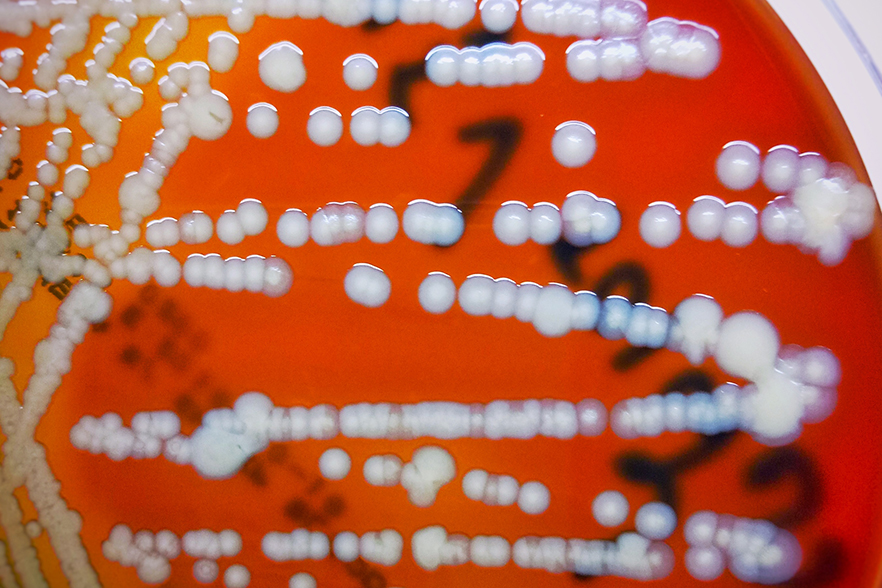MSc Coordinator of the Master in Microbiology
Prof. Jakob Pernthaler (pernthaler * limnol.uzh.ch)
Study Coordinator
PD Dr. Karin Isler (studienkoordination * biol.uzh.ch)
OVERVIEW
Microorganisms, comprising bacteria, algae, fungi and protozoa, as well as viruses, are the most frequent beings on Earth and exhibit by far the greatest phylogenetic diversity. They regulate the global nutrient cycles through their metabolism, and their enormous physiological diversity has enabled them to adapt to extreme environmental conditions. A large number of microorganisms live in close association with higher organisms, including humans, in symbiotic or pathogenic relationships. In the practical and theoretical parts of the Master’s degree course in Microbiology, students focus on the social and cooperative behaviour of bacteria and its molecular and evolutionary foundation, on their life strategies (free-living vs. surface-associated), on other interactions between microorganisms and between microbes and higher organisms, on community features of microbiomes, and on the microbial players and processes in aquatic habitats.
MASTER'S DEGREE COURSE
Students are largely free to choose the modules that they take in the field of microbiology, which are offered jointly by the University of Zurich and ETHZ. These cover such fields as:
interactions between plants and microorganisms, biotechnology, food microbiology, mycology, medical and veterinary bacteriology, microbial genetics, microbial ecology, phytopathology, virology and parasitology.
Mandatory modules:
| BIO 284* | 6 ECTS | Systemic Microbiology (fall) |
| EEE 319* | 6 ECTS | Aquatic Microbial Ecology (spring) |
| BIO 292* | 6 ECTS | Human and Veterinary Medical Bacteriology (spring) |
| BME 326* | 6 ECTS | Evolution of Bacterial Pathogens (spring) |
| BIO 338 | 0 ECTS | Introduction to Scientific Writing |
*Students are requested to choose 2 of these 4 block courses as part of their Master's degree.
The compulsory module BIO 338 Introduction to Scientific Writing (0 ECTS, one day in September or February) should be taken before writing the Master’s Thesis.
GUIDELINES
Students can choose courses (see "Master's degree course") for their Master's degree course from the microbiology courses offered by the Institute of Plant Biology, Vetsuisse Faculty, Medical Faculty of UZH and research groups at ETHZ.
Students must select at least two of the above listed four block courses. The courses to be taken will be defined in the learning agreement at the beginning of the Master’s degree, after consulting the responsible Master’s coordinator and the supervisor of the thesis. Scientists who teach in the advanced courses of the microbiology curriculum are, with agreement of the Master’s coordinator, entitled to supervise master students.
Other recommended modules:
| BIO 297 | 3 ECTS | Social Behaviour of Bacteria (fall) |
| BIO 296 | 6 ECTS | Microbial Bioinformatics: Sequencing Technologies to Pathogen Analysis (spring) |
| BIO 299 | 6 ECTS | Parasites - from Genes to Systems (fall) |
| BIO 403 | 3 ECTS | Superbugs - The Global Crisis of Antimicrobial Resistance in Humans, Animals, and the Environment (spring) |
| BME 307 | 6 ECTS | Microbiomes in Health and Disease (fall) |
| BME 328 | 3 ECTS | Current Topics in Microbiology (fall) |
|
551-1130-00L |
4 ECTS |
Selected Topics in Mycology |
Master's thesis in Microbiology: BIO 504
RESEARCH GROUPS LEADERS FOR MASTER THESES
| Prof. Dr. | Eberl Leo |
| Prof. Dr. | Egli Adrian |
| Prof. Dr. | Greber Urs |
| Prof. Dr. | Hilbi Hubert |
| Prof. Dr. | Kümmerli Rolf |
| Prof. Dr. | Vikram Panse |
| Prof. Dr. | Pernthaler Jakob |
| Prof. Dr. | Sander Peter |
| Prof. Dr. | Seeger Markus |
| Prof. Dr. | Zinkernagel Annelies |

